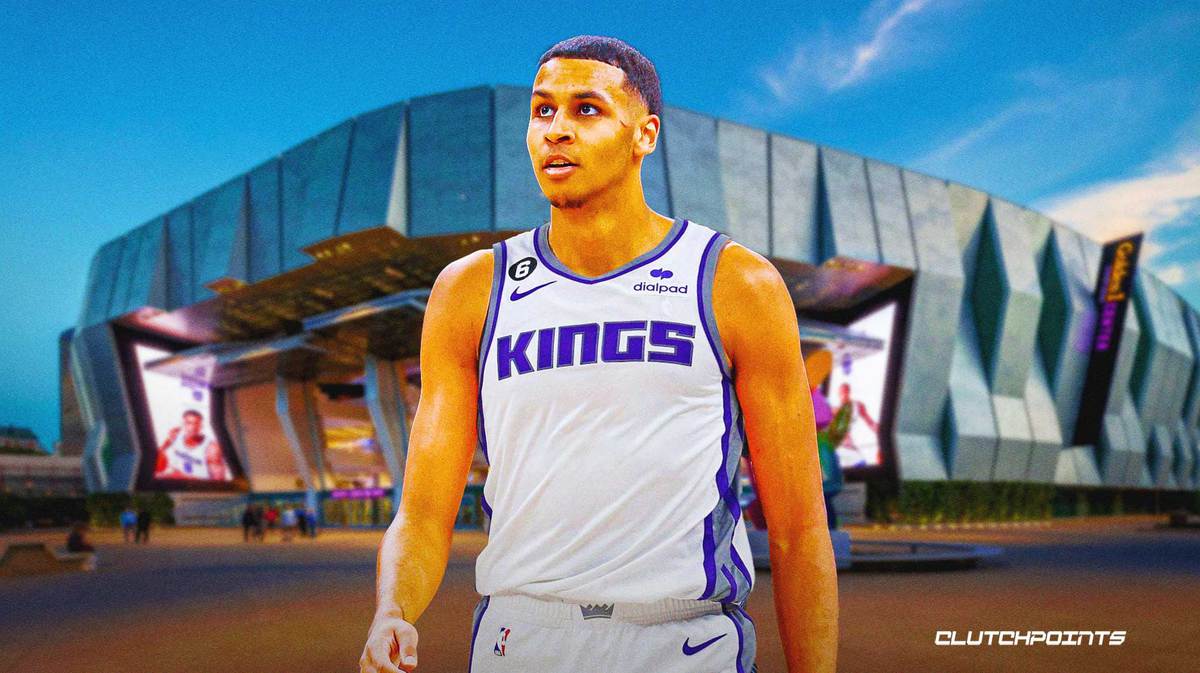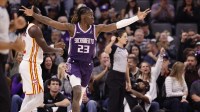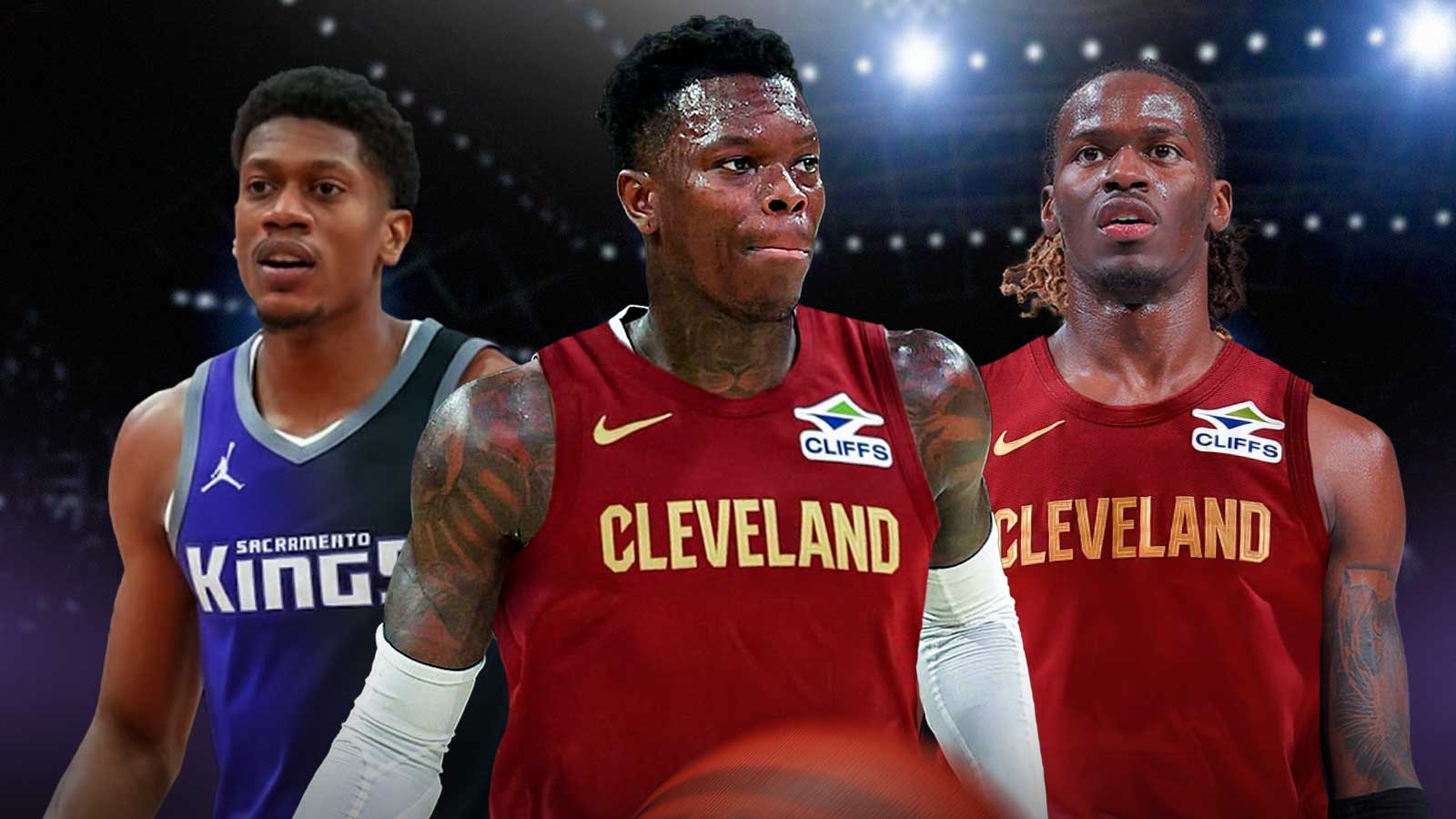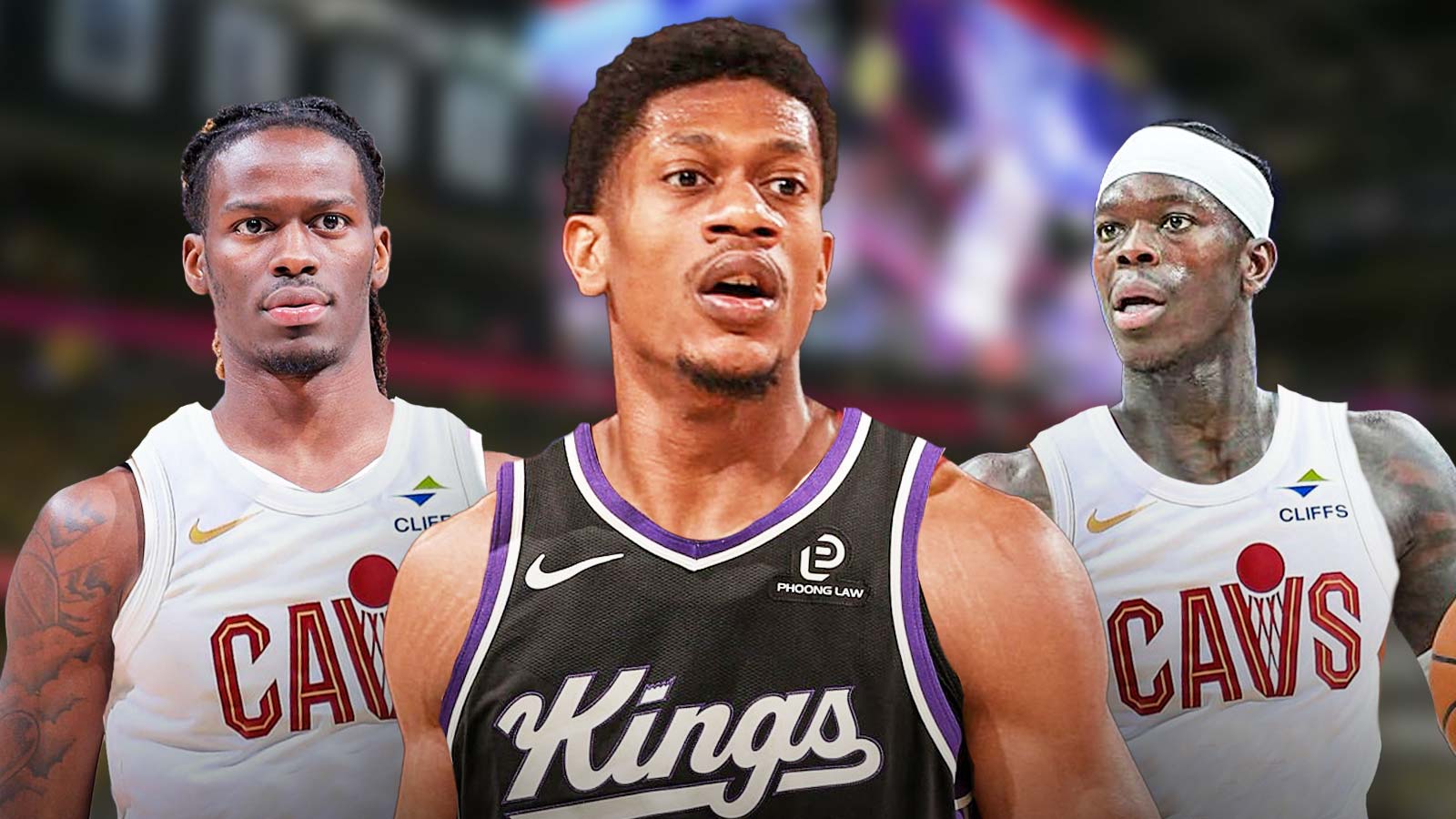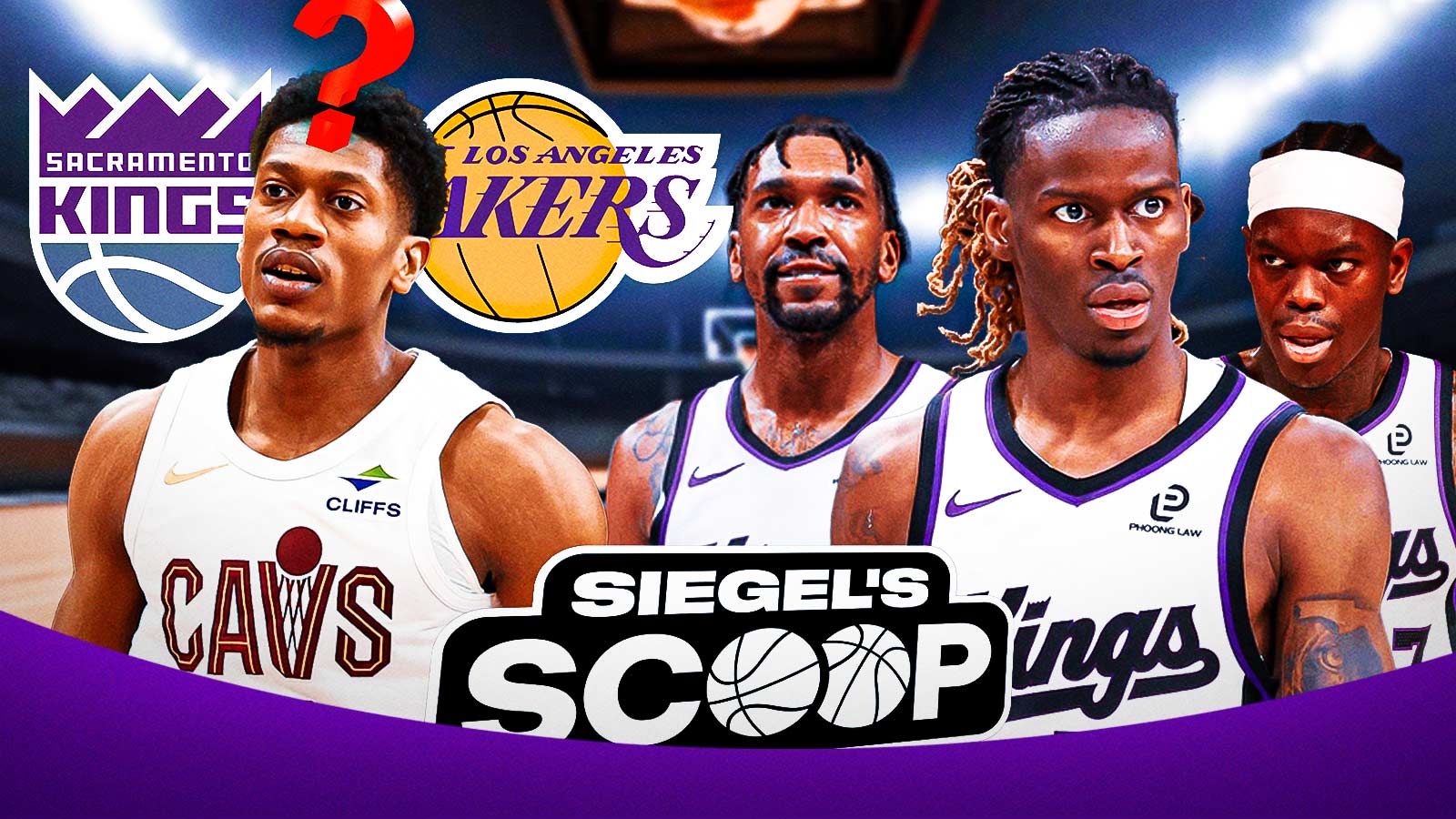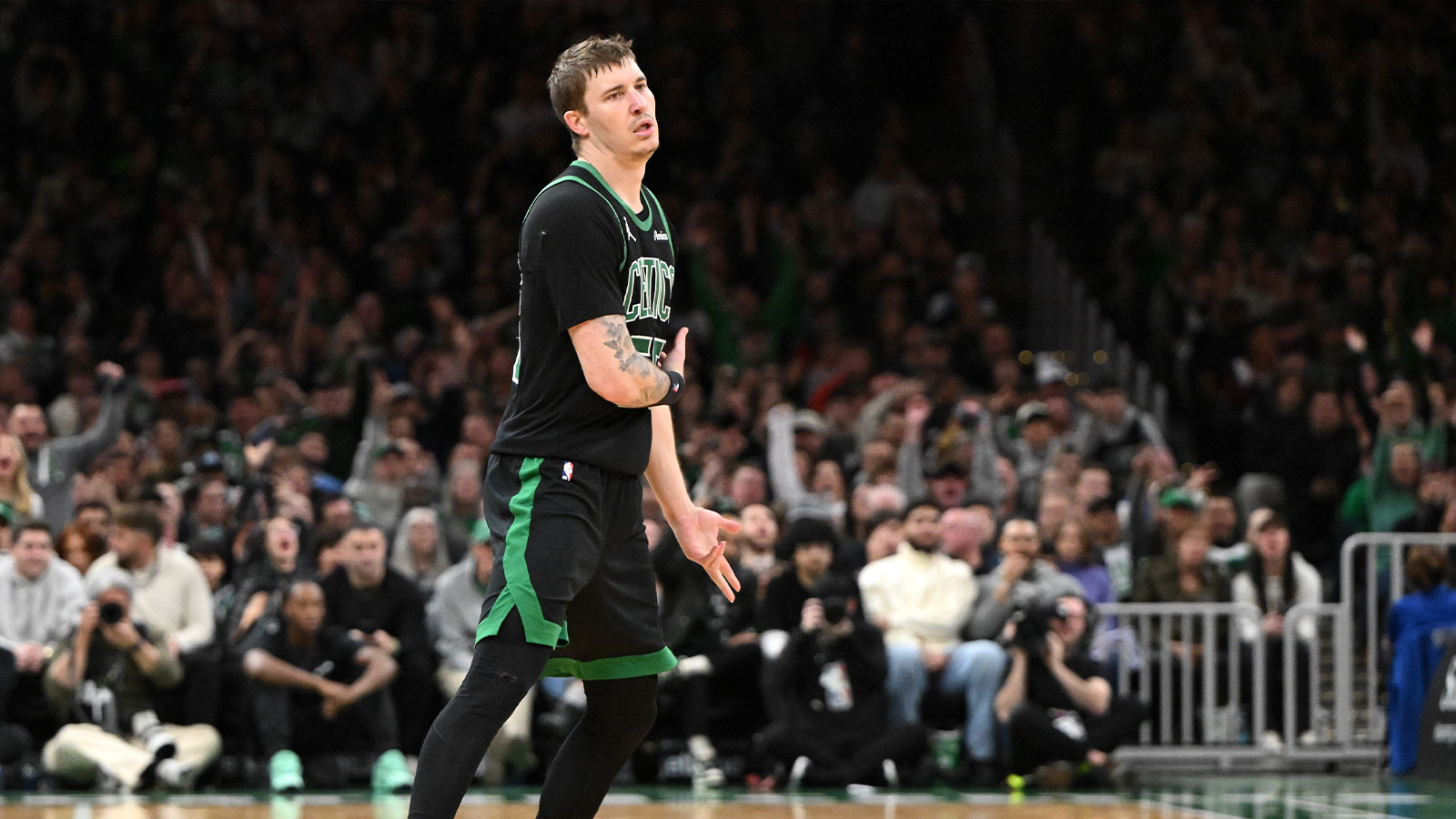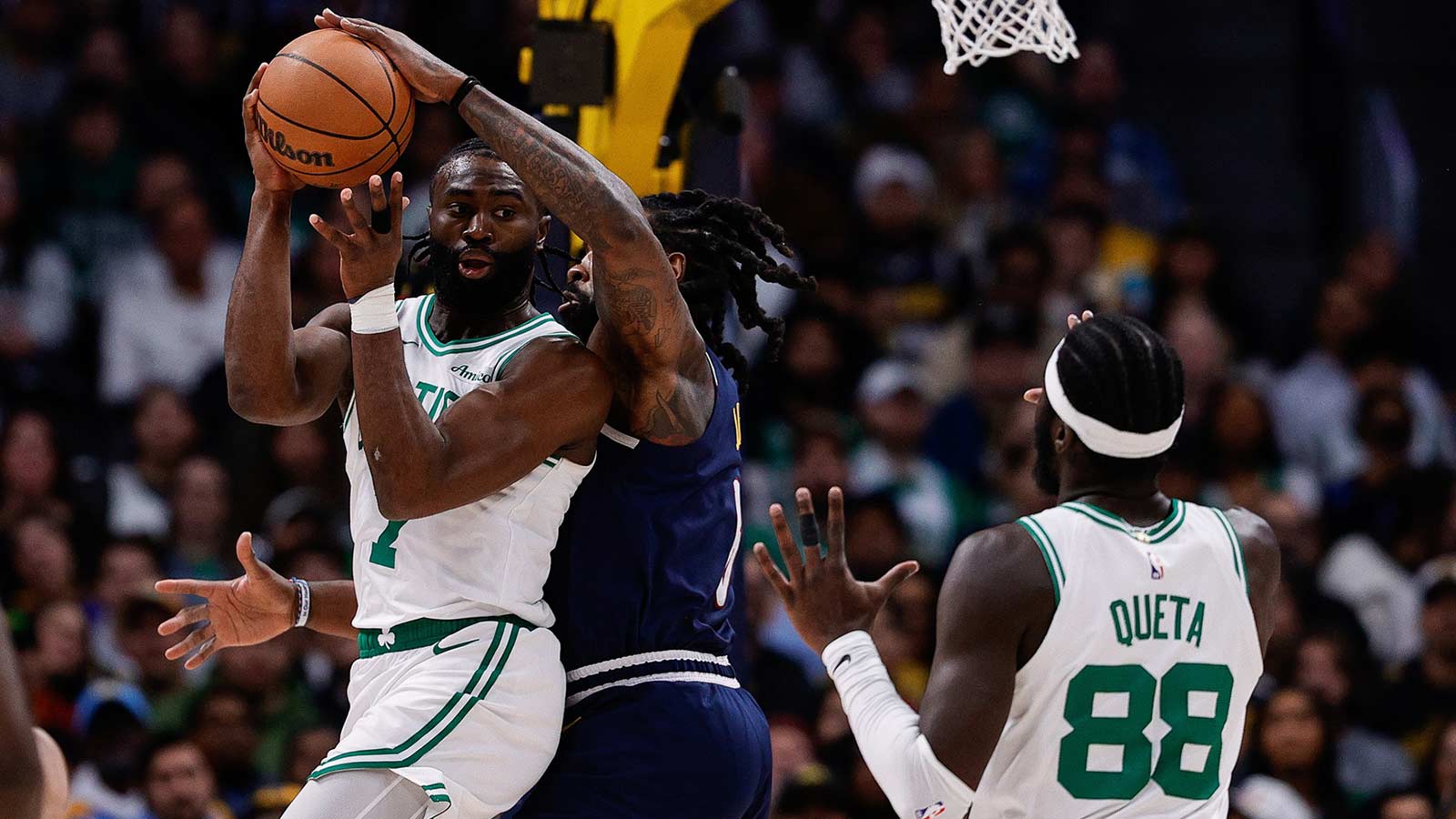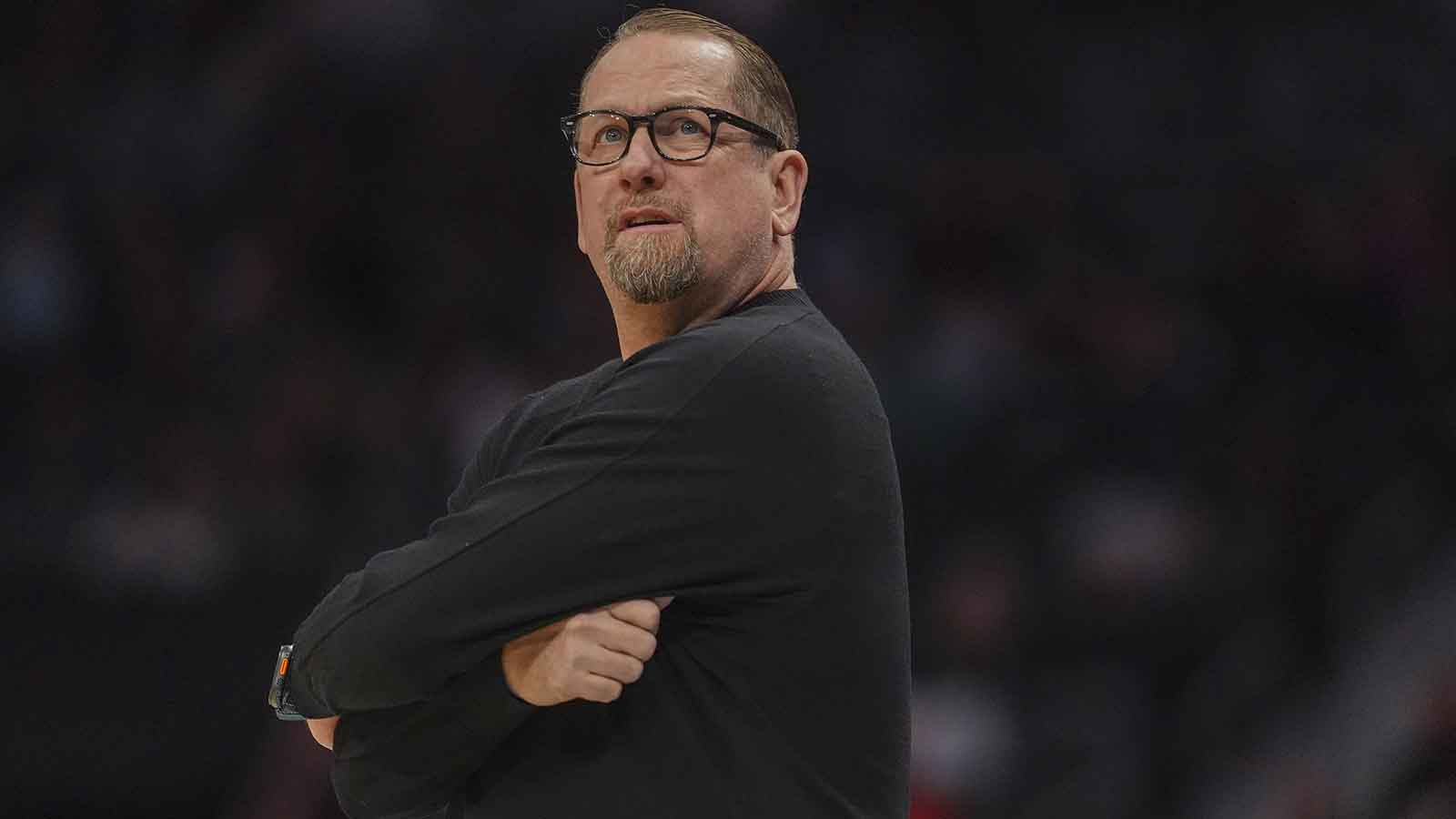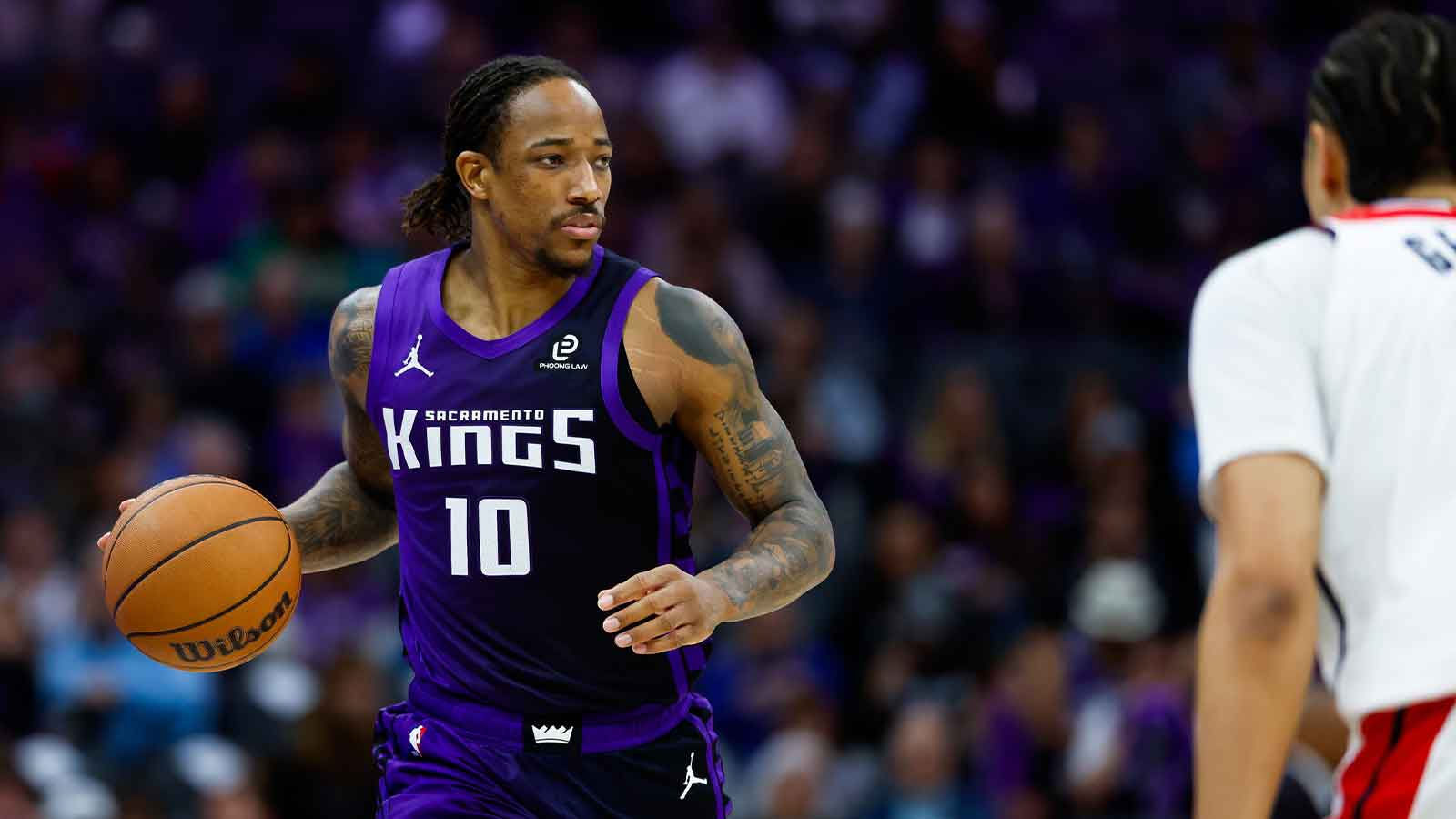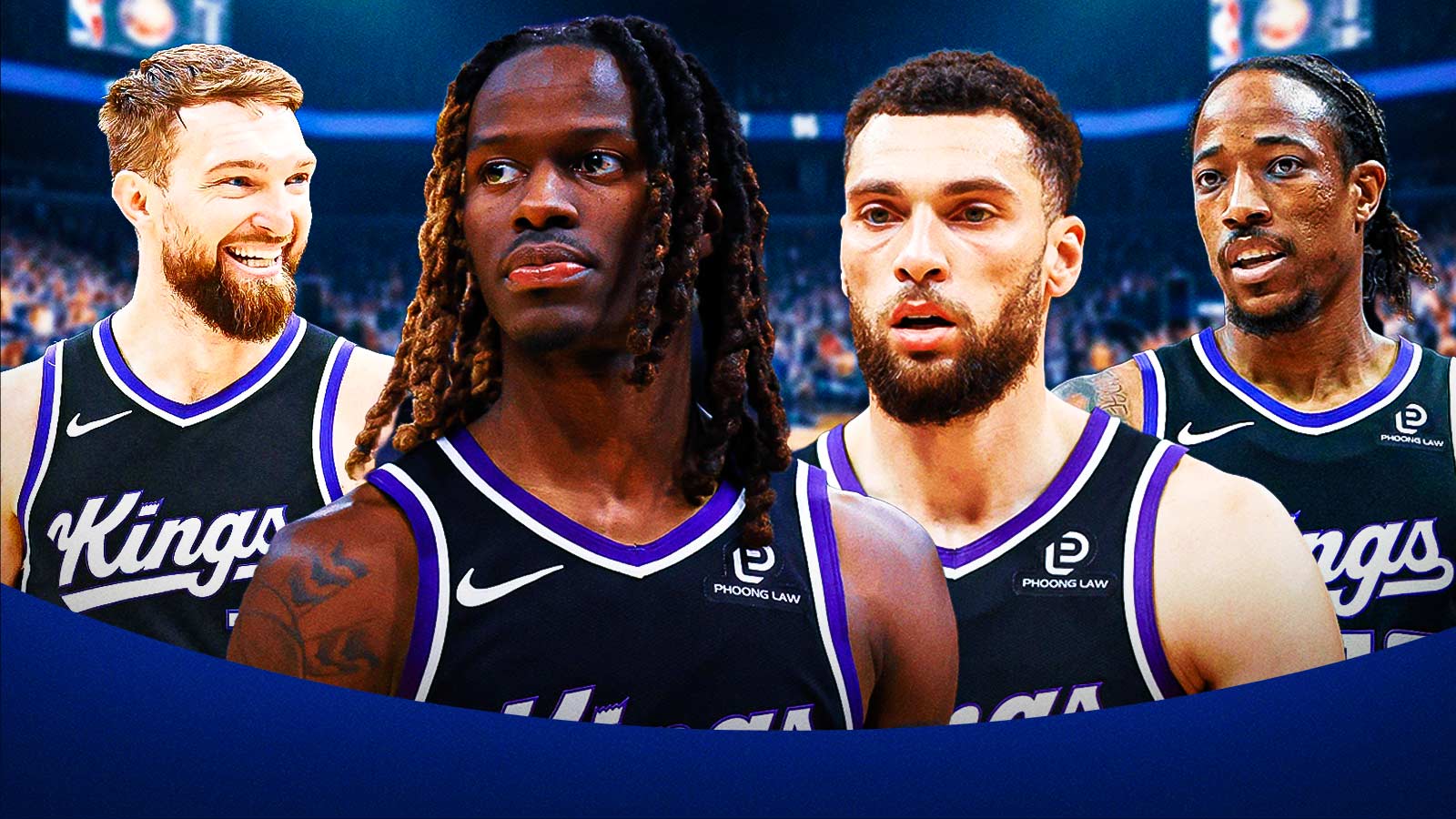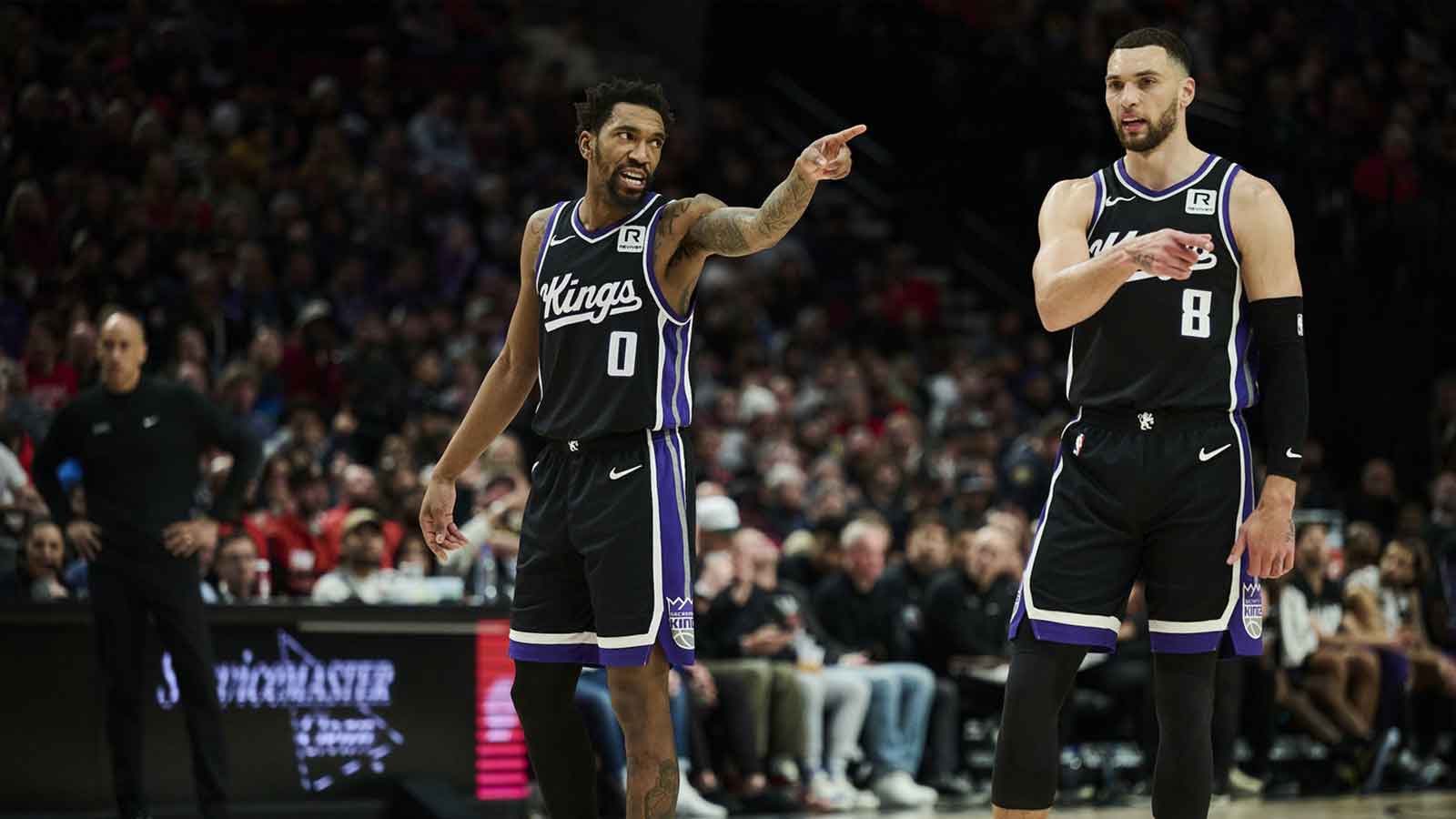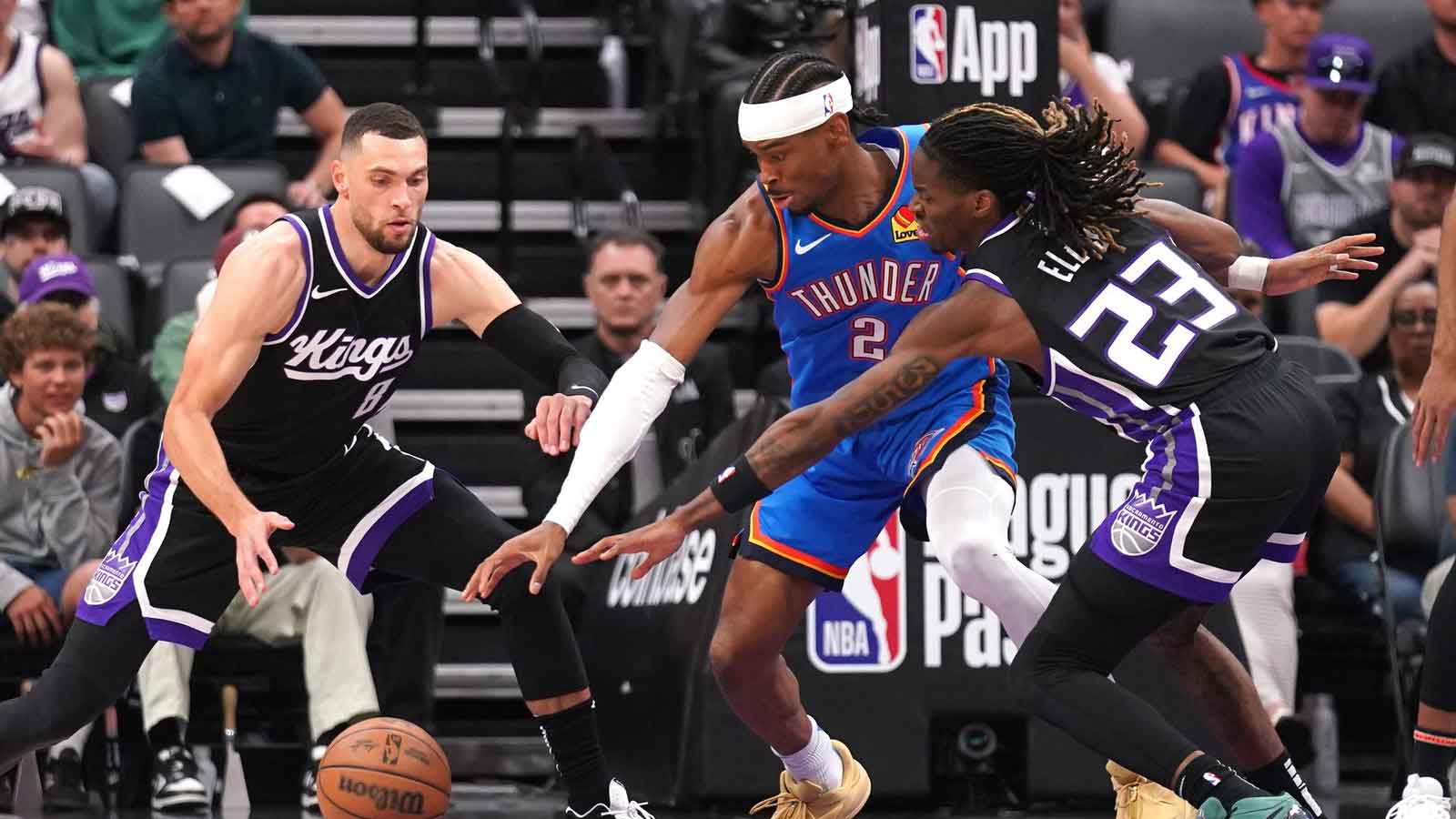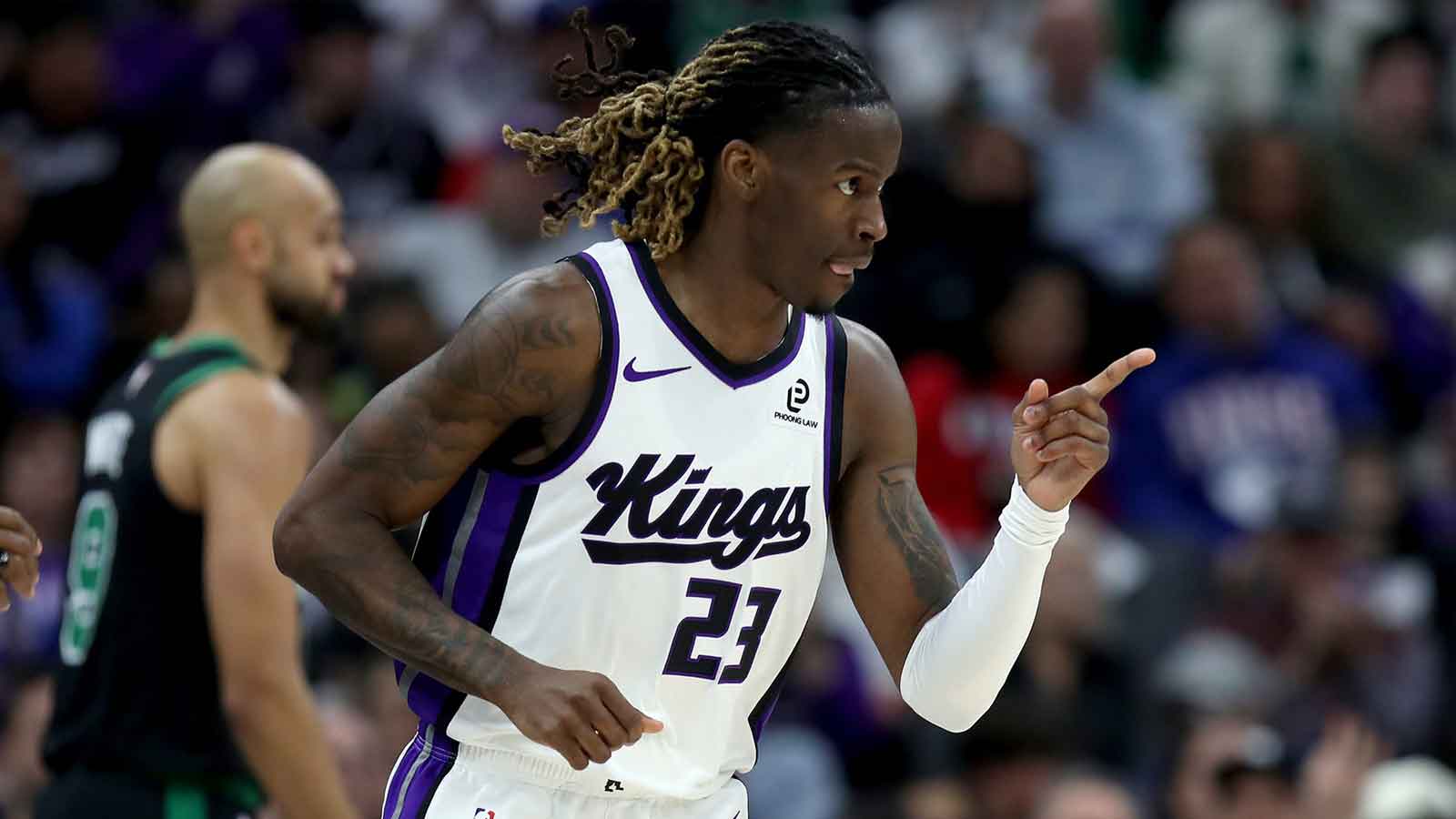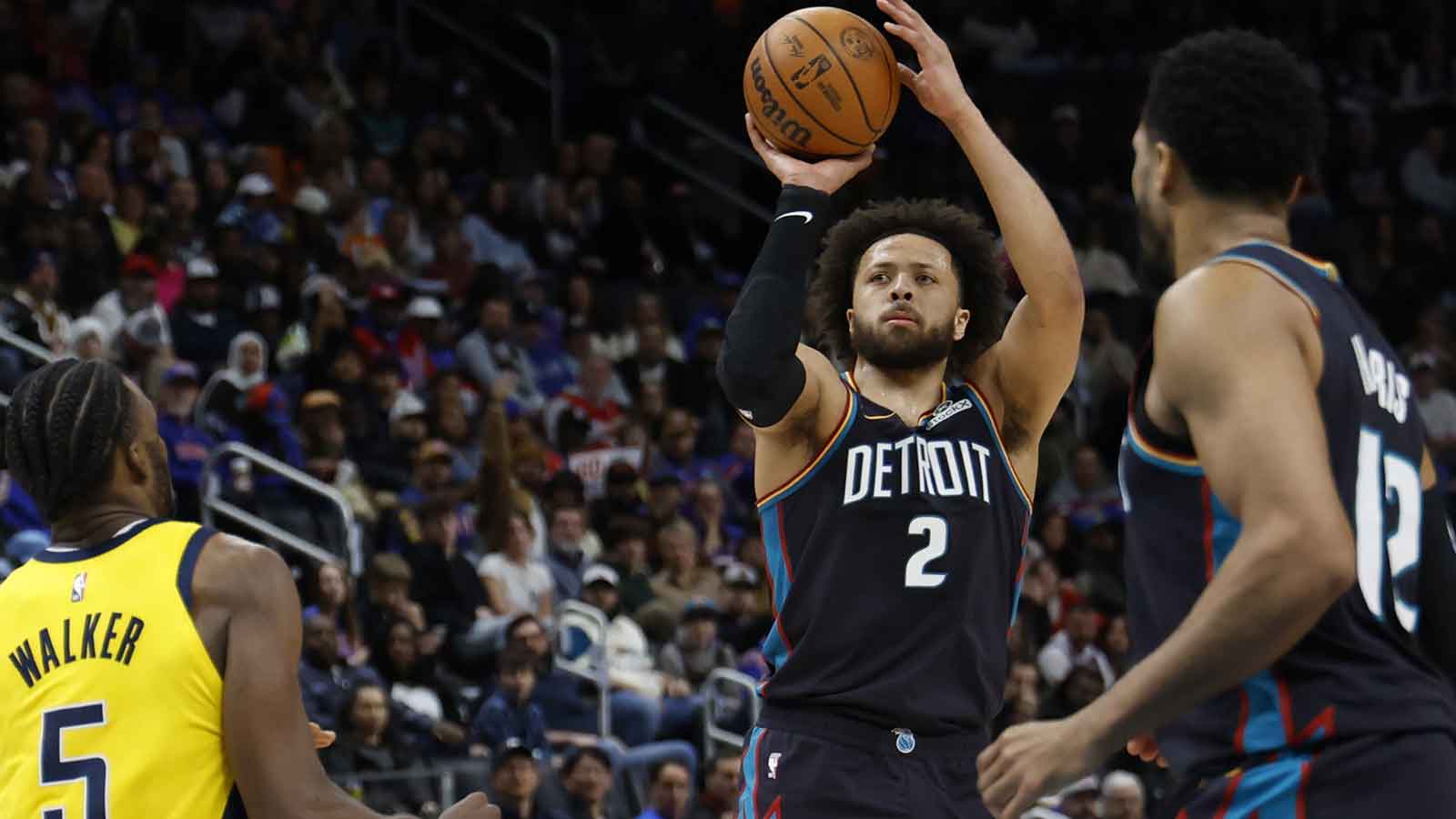Becoming good is fun. This season, the Kings took the NBA by storm thanks to the most efficient offense in NBA history. Led by a pair of All-NBA studs in Domantas Sabonis and De’Aaron Fox, the Kings blitzed an unsuspecting league to the tune of 119.4 points per 100 possessions and a top three seed in the Western Conference playoffs. Now, they have expectations; Bad teams can drink from a firehose of talented young players each year in the lottery and have oodles of cap space. The Kings are capped out and have the 24th pick in the draft, which hardly guarantees that it’ll return even a marginal NBA player. Becoming great is hard work. As such, the Kings need to target Kris Murray, a sweet-shooting lefty forward who’s perhaps the steadiest player in the 2023 NBA Draft.
Size
Even as they racked up wins and points by the fistful, the Kings were circumscribed by their roster’s physical limitations. Their guards (Fox, Malik Monk, Kevin Huerter) were deadly; their bigs (Sabonis, Alex Len, Trey Lyles) were special; the Kings’ wings, though, were lackluster. With Harrison Barnes a flight risk in free agency, the Kings suddenly find themselves without a partner for Keegan Murray, their First-Team All-Rookie forward who authored the greatest rookie shooting season ever.
Enter Kris Murray, the identical twin brother of Kings' forward Keegan. By virtue of being an identical twin, Kris boasts the same prototypical size as his brother. Standing 6’8 with a 7’0 wingspan, Kris Murray has the tools to thrive in any situation; he can function as a large-ball wing and a small-ball center and everything in between.
Defense
While Keegan is the more vertically explosive brother, Kris is potentially the more functional athlete. Unlike Keegan, Kris is already a legitimately good defender rather than merely a good-enough one. At Iowa, Kris Murray stood out as the Hawkeyes’ one good defender. Although Murray lacks the tools or mentality to be a truly dominant wing stopper, he succeeds because of his all-around flawlessness. Murray doesn’t have the capacity to make great plays so he compensates by almost never making bad ones.
On the ball, he’s big and smart, expertly shading ball-handlers towards the help defense since he can’t quite envelope them on his own. Away from the ball, his greatest strength is his relative invisibility. He never meets big men at the rim as a paint-erasing low man, yet his rotations are precise and well-timed. He’s a defensive NPC in the best possible sense—Kris Murray isn’t the star, but he’s an integral piece of the background who ties the whole enterprise together.
For the Kings, this reliability and soundness is particularly important. In the Playoffs, the Kings struggled to construct lineups that were capable of holding their own on both ends of the court. Davion Mitchell was the one semi-trustworthy antidote to Stephen Curry, but was borderline unplayable on offense; Kevin Huerter is a sniper, but lacked the defensive fortitude to warrant major minutes.
Conversely, Kris Murray is solid—the Kings don’t need to worry about him. He doesn’t need to be coddled or protected.
Shooting
The general contours of Kris Murray’s offensive game are unambiguous: he plays like Keegan Murray, but a little bit worse; there’s a reason that the Kings picked Keegan fourth in the 2022 NBA Draft while Kris might still be available at 24 this year. Namely, Kris is simply a very good shooter whereas Keegan was a historically great one who nailed 41 percent from three and set a rookie record for made threes in a season. Still, there’s no shame in being a worse shooter than Keegan Murray; generations of wealth have been created and passed down by guys who were worse shooters than Keegan Murray.
During his breakout junior year at Iowa, Kris Murray was one of just ten players who were 6’8 or taller and shot more than 190 threes. His accuracy was slightly underwhelming (his 33.5 percent three point field goal percentage is very meh), but that doesn’t reflect his true quality as a shooter. To wit, the mere fact that Murray was allowed to hoist so many threes is a testament to his outside game. If Murray weren’t a good shooter, Iowa would not indulge him as he launched 11.2 threes per 100 possessions.
Fox and Sabonis absorb so much of the ball-handling and creation, the rest of the Kings need to productively orbit the two stars. Accordingly Murray’s combination of shooting and other complementary offensive skills (cutting, screen-setting, decision making) makes him the perfect fit for the Kings’ unique offensive system; he’s a world-class orbiter.

